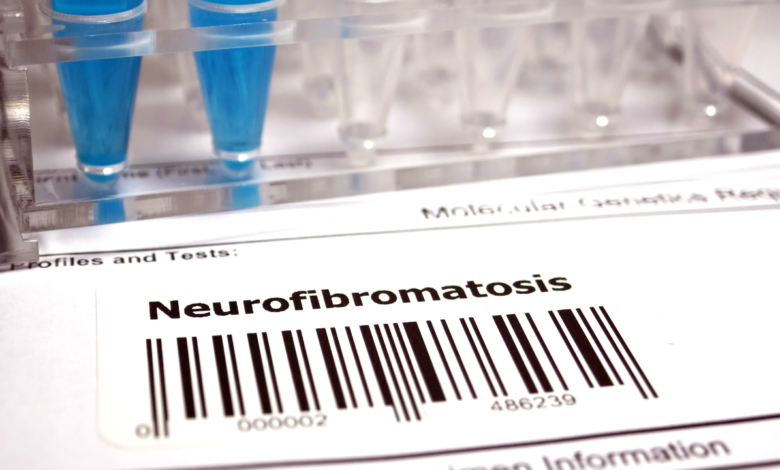Neurofibromatosis Type 2 (NF2): A disorder causing benign tumors to grow on the nerves and brain.

What is the Neurofibromatosis Type 2 (NF2) ?
Neurofibromatosis Type 2 (NF2) is a genetic disorder that causes tumors to grow on the nerves in the brain, spinal cord, and other parts of the body. These tumors, called schwannomas, can be benign (non-cancerous) or malignant (cancerous).
What are the symptom of Neurofibromatosis Type 2 (NF2)?
Symptoms of NF2 can vary depending on the location and size of the tumors. Common symptoms include:
- Hearing loss: This is often the first symptom to appear.
- Headaches: These can be severe and may be accompanied by nausea and vomiting.
- Facial weakness: This can cause difficulty chewing, swallowing, or speaking.
- Vision problems: These can include blurred vision, double vision, or loss of vision.
- Balance problems: These can make it difficult to walk or stand.
- Numbness or tingling: This can occur in the face, arms, or legs.
Who can suffer from Neurofibromatosis Type 2 (NF2)?
NF2 can affect people of all ages, but it is most commonly diagnosed in young adults. The condition is inherited, meaning that it is passed down from parents to their children.
What are the type of Neurofibromatosis Type 2 (NF2) ?
There are two main types of NF2:
- Classic NF2: This is the most common type and is characterized by the development of multiple schwannomas.
- Schwannomatosis: This type is characterized by the development of fewer schwannomas, but they are often larger and more aggressive.
Which diagnostic are available for the Neurofibromatosis Type 2 (NF2) ?
· MRI: This is the most common imaging test used to diagnose NF2. It can help to identify the location and size of tumors.
· CT scan: This can also be used to identify tumors.
· Genetic testing: This can confirm a diagnosis of NF2 by identifying the mutated gene.
What are the treatment of the Neurofibromatosis Type 2 (NF2)?
There is no cure for NF2, but there are treatments available to manage the symptoms and improve quality of life. These treatments may include:
- Surgery: This can be used to remove tumors that are causing symptoms.
- Radiation therapy: This can be used to shrink tumors that cannot be removed surgically.
- Chemotherapy: This is rarely used to treat NF2, but it may be considered in some cases.
- Hearing aids: These can help to improve hearing loss.
- Physical therapy: This can help to improve balance and coordination.
Which diet should I take ,if any ?
There is no specific diet recommended for people with NF2. However, a healthy, balanced diet is important for overall health.
Which speciality of the doctor will Neurofibromatosis Type 2 (NF2)?
Individuals with NF2 may need to see a variety of specialists, including:
- Neurologist: To diagnose and manage the condition.
- Neurosurgeon: To perform surgery to remove tumors.
- Radiation oncologist: To administer radiation therapy.
- Audiologist: To address hearing loss.
- Physical therapist: To improve balance and coordination.
- Genetic counselor: To provide information about the genetic risks of NF2.
In Neurofibromatosis Type 2 (NF2) completely curable ?
No, NF2 is not completely curable. While treatments can help to manage the symptoms and improve quality of life, the underlying genetic condition cannot be reversed.





